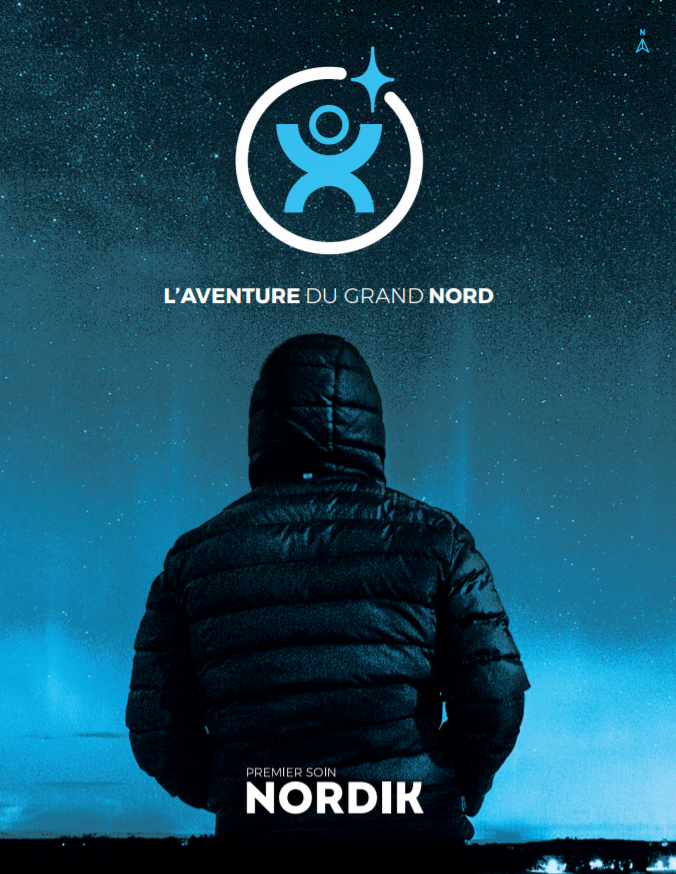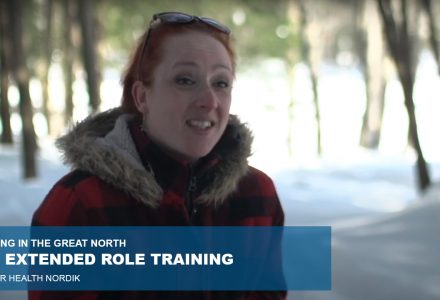Answers
to your questions!
In this user-friendly page, you will find answers to the most frequently asked questions by our employees and candidates. Do not hesitate to submit your suggestions.
Frequently Asked Questions
Will I be alone in the North?
You will be far from your family and loved ones, but you will discover people who, like you, have embarked on this unique adventure. Professionally, you will never be alone. On a personal level, it’s up to you!
Do I have to be bilingual to work in the Great North?
- To work on Aboriginal reserves, you must have sufficient English to be effective in your practice.
- To work off-reserve, you have to be bilingual since the language used is French.
What level of English proficiency do I need?
Working on Aboriginal reserves requires sufficient English to be able to work and teach in English.
Do I have to write my notes in English?
In Quebec, you can write your professional notes in French or English, depending on your preference.
Is the Great North dangerous?
There are wild animals and other dangers in the Great North. However, indigenous people have been living there for a long time, and they know how to protect their communities. It is important not to venture outside the villages alone!
Do I need to bring supplies?
All northern communities have at least one grocery store, often two. You will find all the necessities such as fruits and vegetables, meat, dairy products, etc.
Will I get on-site orientation?
You will always have the necessary orientation support once you arrive, regardless of the community where you will be helping. To guarantee the best possible experience, Nordik Premier Health takes workplace integration seriously.
What happens if I don’t like it?
We are always available to listen to your concerns and find solutions, just give us a call!
What training courses are available?
We are very proud to offer one of the most comprehensive and respected training programs for extended nursing roles. You can find out more about the details of our training courses on (link to our training page).
What are the prerequisites for working in the Great North?
We are mainly looking for motivated people who are professionally curious and who like to travel. Professionally, we require two years in critical care, preferably emergency or intensive care. As most Aboriginal communities are English-speaking, being bilingual is also critical.
Will you be able to accommodate my availabilities?
We have openings in several regions of Quebec and Canada. If you have availabilities, we have opportunities!
Extended Role Training
What Makes Nordik’s Extended Role Training a Success?
Our main goal is to offer you the best possible conditions throughout your journey with us, excellent preparation, and outstanding support from our instructors and advisors. Our training is regularly updated to consider our instructors’ experiences and the situations our nurses encounter in the field.
We rely on the knowledge, practice, and over 30 years of Northern experience of a multidisciplinary team of instructors. Forget about college classrooms or university lecture halls. Above all, our learning philosophy is lively, proactive, practice-based, visual, tactile, and presents real-life situations!
Training is free in exchange for an initial four-week contract with us.
Does the OIIQ recognize Extended Role Training?
All our instructors are health professionals who have significant working experience in the Great North. Our lead instructor has completed a master’s degree and many mandates in multiple communities. In short, she has many stories to tell!
Extended role training is so specific to the Great North that, unfortunately, the OIIQ does not recognize it. However, the knowledge you will gain will be useful throughout your career.
I Am a Student. How Should I Approach My Career if I’m Interested in an Extended Role?
Our recommendation is to move into the emergency and critical care departments early on to gain the necessary experience for an extended role. Working in the Great North requires at least two years, full-time experience.
Any other experience in obstetrics, pediatrics, etc., is an asset. Once you have achieved this prerequisite, you can follow our free, complete, personalized and individualized, four-week training course.
Extended role training provides the necessary skills to deal with various issues in northern health care facilities.
How Do I Know if I’m Ready to Work in the North?
If you meet our requirements (education, experience, language) and if you can leave for several weeks, start learning as much as possible about the Great North. You can watch our online information videos, read about the subject, talk to nurses who have worked in the North and ask them questions. We have prepared a questionnaire that allows you to see if you qualify for an extended role. Most candidates figure out if they want to move forward early on.
Why Do I Need to Complete the Four-Week Extended Role Training?
Extended role training provides the necessary skills to deal with various issues in northern health care facilities. Regardless of your current specialty or work experience, you will be well equipped to handle any eventuality.
Since the technological equipment used on-site is minimal, you will rely on more traditional diagnostic methods. All your nursing skills and experience will be put to good use.
Why Do I Need Training and Two Years of Critical Care Experience?
The reality of remote health care facilities is that the available resources for emergencies are much more limited than those in larger centres. Two years of critical care experience allows you to have the necessary clinical judgment and skills to do your job safely and efficiently.
During our training, we review clinical evaluation basics and discuss systems you are probably less familiar with, such as ophthalmology, dentistry or dermatology! Versatility is essential in the North. Our training will allow you to broaden your field of practice to expanded role nursing!
Transport and Lodging
Will I need to take care of my plane ticket?
Nordik Premier Health pays for and arranges your transportation by plane to the communities in the Great North.
Where will I stay between my shifts?
- While working on Aboriginal reserves, we will accommodate you in transit apartmentsthat health professionals share. You will have a private room at all times.
- When working off-reserve, we provide hotel rooms near your workplace. Other possibilities are also available, do not hesitate to contact us for further information.
When I arrive by plane, how will I get to work or my accommodation?
Native reserves are relatively small and everything is easily accessible on foot. A short walk to get to work in the morning starts the day off well!
Employment Conditions
Do I have to offer minimum availability?
With Nordik Premier Health, you are free to work when you want. We do not require any minimum availability.
Will I have insurance?
-
-
- We recommend that you consult the Salary Guide + page, which clearly explains all the benefits Nordik Premier Health offers
-
Can I bring my spouse/children/animals?
Although we understand the desire to have our family or pets with us at all times, they can’t accompany you during these mandates. However, this will be a valuable time for you, and upon your return, you will have incredible stories to share with them.
How long do mandates last?
- Nordik mandates last between two and eight weeks, with a four weeks average. We can accommodate the length of your next mandate.
- Availabilities for off-reserve mandates are entirely up to you. Given the geographical distance, most prefer to travel for a few weeks at a time.
Will it be possible to talk to my loved ones and my family?
You will have access to a phone to communicate with your loved ones during all your mandates. Internet is generally accessible, but is sometimes slow, especially in Nunavik. Also, note that your cell phone might not work in all communities. Please do not hesitate to contact us for further information before considering a mandate.
Ready to Get Started?
Quick links
Our latest articles and tips
Nordik Premier Health is recruiting exceptional health professionals
Do you want to find out if you have the profile to undertake this unique adventure? If you…
Learn moreThe Nordik Premier Health extended role training, a must for the Great North
The extended role training While in your current position you don’t have enough time to provide personalized care,…
Learn moreAboriginal myths and culture
Working in the Great North is choosing a way of life where all your professional and human aptitudes…
Learn more




